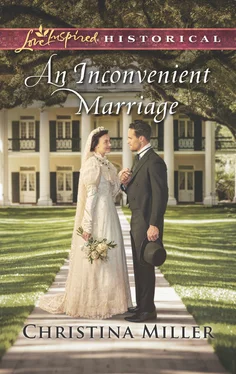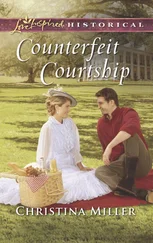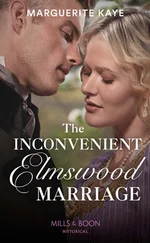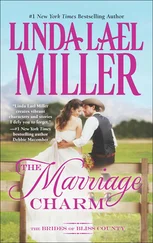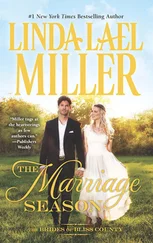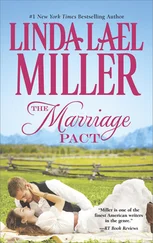His distress cut into Clarissa, and she chose her words carefully. “You couldn’t have known a battle would take place so near. Did it affect her greatly?”
“She’s not the girl she once was. She’s rebellious and dissatisfied, and I can’t reach her. She always seems embarrassed of me.” The reverend hesitated then turned his focus to Clarissa, his dark eyes unreadable. “Her one joy is singing. When Colonel Talbot let me know your pulpit was empty, he also told me of a gifted vocal teacher here. If Emma can flourish anywhere, I think that place is Natchez.”
Emma—the troubled young girl. Clarissa had sensed a sweetness inside her—sweetness masked by bitterness and disappointment. How well Clarissa knew those emotions. “I’ve fought her battle, and I still fight it at times.”
“She’s taken a shine to you. I think that, as her stepmother, you could help her. I’m sure you would grow to love her, and she you.”
“Loving Emma would not be hard.” Loving the reverend would be another story altogether.
Clarissa stepped away to the window and gazed down upon the chinaberry trees flanking State Street. “You said Graham Talbot told you of a voice teacher. I’m the only one in town, so he must have spoken of me.”
“I suspected as much, especially since you’re the choir director. Your speaking voice is so melodic, I knew you must be a talented singer.”
Clarissa opened her mouth to speak, but his words so surprised her, it took her a moment to respond with her thanks. What kind of man was this, giving her the one compliment that would reach her heart more than any other? How could he have known her father had always told her the same thing? And who else knew how those words would comfort her heart?
She shook her head. It was mere coincidence. And the parson had a nerve too, suggesting marriage in such a manner.
Her grandmother caught her attention then and gave her an almost imperceptible nod, her brows high and eyes wide. Then she smiled what Clarissa was sure she meant as a sweet, grandmotherly smile.
But Grandmother Euphemia was more vinegar and lemons than sugar and spice. Exactly who was she trying to fool? And what was she trying to do? Marry Clarissa off as Grandfather had always wanted?
Clarissa narrowed her eyes at the older lady, unwilling to take this a step further without finding out why Grandmother was acting so strangely about this even-stranger proposal. Which hadn’t been a proposal at all, now that she thought about it. “Parson, would you please excuse my grandmother and me for a moment?”
When the reverend had taken his leave, she closed the door with a fierceness that fell just short of a slam, making the glass rattle enough to release a tiny bit of her frustration. She opened her mouth to speak.
Grandmother beat her to it.
“Clarissa, this is a fine opportunity. It’s the only way we can keep Camellia Pointe.” She rapped her cane on the pine floor as she was wont to do when emphasizing a point. But this tap carried a strange finality that spiked through Clarissa like the Fighting Chaplain’s famed sword. “Do you realize we could move back to Camellia Pointe? With a man in the family, we’d be safe in the country again. And with Absalom back from the dead, so to speak, we’d have to move out of his town house anyway. I say you should move forward with the reverend’s suggestion.”
Move forward? Clarissa longed for a cane of her own to rap at her grandmother. “You’re not being rational. If I was willing to consider this, which I am not, it would take me a good deal of time to decide.”
“You don’t have time.” Grandmother said it as if they spoke of nothing more impacting than a horseback ride before Sunday service. “The Reverend Gifford’s interim ministry is over. He’s leaving on the last steamboat tonight.”
“I refuse to marry a stranger without thinking it through, without praying about it.”
“Then pray fast. You don’t want that Reverend Abernathy from Faith Bethel to conduct the service, do you?”
Not that creepy-looking, obstinate man. “We could send to Vicksburg or Jackson for a preacher. If I decide I need him.”
“You know the situation of both those churches—of every church in the South, including this one. Until our economy improves, no deacon board will approve such a trip for its pastor. When members’ income is low, the tithe is low. It’s simply too expensive, and I can’t pay for it either.”
“Nevertheless, I’ve always said I’d never marry for the sake of convenience.”
“You’ve always known my own marriage was arranged, and that my father brought me here from Memphis to marry Hezekiah. But we were happy.” Grandmother cast her gaze through the door glass and into the hall, where a portrait of Grandfather hung. “Marriages of convenience can develop into great love.”
“Great love?” Clarissa lowered her voice, having unintentionally raised it even more, enough to bring Grandmother’s brows up again. “You were happy, but Absalom’s parents had an arranged marriage too, and they were miserable their whole lives long. Remember how distant they were to each other, always traveling and living apart? How was their marriage happy?”
“They were—different.”
“Obviously. What parent would name their child Absalom—one of the worst sons in the whole Bible?”
Grandmother Euphemia put on her “no-nonsense” face. “They have nothing to do with us now, other than the fact that their son is trying to take what’s ours. Think about Camellia Pointe instead. Think about Good Shepherd and the thousands of hours your grandfather spent there, providing a safe place for less-fortunate travelers to stay at the waterfront.”
“But to marry...” Clarissa ran her thumb across the bare third finger of her left hand.
Grandmother’s eyes brightened with comprehension. “This is because of Harold Goss, isn’t it? Do you refuse to marry the parson because you’re still in love with that fool?”
“You don’t understand. You never have. Harold’s betrayal killed all the tender emotions I had for him. If he hadn’t up and married that hateful Belinda Grimes just because her father had bigger cotton fields than we did—”
“He would have found someone else with even more money, and he would have married her.”
“While he was engaged to me?”
Grandmother waved away her objection. “It could have been worse. Missy Conrad’s beau just never showed up for their wedding. Left her with a church full of guests and pink azaleas.”
“Yes, and she married a few months later and was the talk of Natchez. She had to endure both the pain of betrayal and public humiliation. Not to mention pity.” And the pity was the worst part. Everywhere Missy went, the Natchez elite stopped to whisper. And they’d done the same with Clarissa. “I can’t endure the whole town feeling sorry for me because I was the bride in a loveless, arranged marriage.”
“Then think of enduring Camellia Pointe going to ruin under your cousin’s management. He may well sell it, so imagine enduring the knowledge of strangers in your bedroom, in your grandfather’s study—in his little sanctuary.” Grandmother surveyed her a moment and then touched Clarissa’s cheek. “Can you honestly say you could give it up?”
At the rare tender caress, Clarissa looked into her grandmother’s eyes, a mirror image of her own. She saw something there she’d never seen before, and it looked like fear.
The bitter bite of fear welled up in Clarissa’s throat, as well—fear of loss, fear of trust. Grandmother was right about many aspects of this appalling situation, but she was wrong about Harold Goss. Clarissa wasn’t still in love with him. However, he had reinforced the lesson her father had taught her years before: men could not be trusted.
Читать дальше
